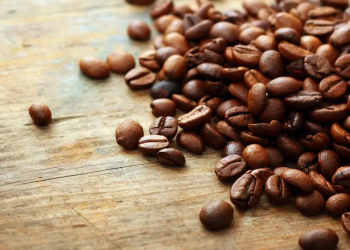Did you know that caffeine can help you lose weight? Yes! Recent studies reveal that there is a definite link between caffeine and weight loss! Caffeine, the world’s most popular psychoactive drug is present in coffee, tea, green tea, energy drinks and supplements. No matter where you get it from, consuming a certain caffeine dose per day is known to support your weight loss goals. But how does this exactly work, and what should you know about before taking up caffeine for weight loss? Park your worries aside, for this article covers all the important points related to caffeine for losing weight. What is Caffeine?: Caffeine is a type of legal psychoactive substance present in many drinks like coffee, tea, green tea and cocoa. It stimulates your central nervous system and increases your brain activity, by blocking the effects of Adenosine, a brain relaxer. Caffeine keeps you mentally awake and allievates the feeling of tiredness. Is Caffeine Good for Weight Loss? Caffeine does help you lose weight by boosting the body metabolism. It gets quickly absorbed into the bloodstream and promotes faster digestion. Additionally, some studies suggest that high caffeine content can increase thermogenesis, which generates more heat for faster fat burn, leading to weight loss. (1) Caffeine may also contribute to weight loss by burning unwanted calories in the body when combined with catechins and ephedrine. How Does Caffeine Help in Weight Loss?: Many studies confirm the role of caffeine as weight loss catalyst. There are multiple theories to explain how this happens! Here are some of the major observations on how caffeine helps you lose weight 1. Increases Metabolic Rate: Caffeine has a thermogenic effect on the body and raises the body temperature to slightly above normal. This results in increasing the metabolic rate of the body, allowing the body to burn fat much faster. (2) Caffeine also helps in freeing up the fat cells from their storage units and converting them into energy through Lipolysis. By getting rid of excess fat, caffeine helps you lose weight quickly. 2. Decreases Exertion During Exercise: Physical exercise is indispensable to weight loss. However, people get tired out quickly, leading to poor or ineffective results from their workout program. One way to overcome this issue is by taking in caffeine. Studies reveal that increased caffeine intake reduces workout fatigue, allowing the person to perform better. (3) This in turn increases fat loss and weight loss due to a higher calorie burn. 3. Hunger Suppressant: One of the key benefits of caffeine for weight loss is its appetite suppressant properties. Some studies show that consuming caffeine 0.5 hrs to 4 hrs before meals may curb hunger pangs. (4) Drinking coffee or tea before meals can reduce your overall food intake, which inturns reduces the daily calorie count. Caffeine can also prevent weight regain by limiting your food intake and keeping you satiated for longer time. How Much Caffeine Is Good For Weight Loss?: To notice a significant amount of weight loss, you must consume larger doses of caffeine per day. Some studies reveal that 10mg of caffeine intake stimulates 13% increase in metabolic rate for every 1kg weight loss (5). This rule is not a standard measurement and can vary with the person’s current BMI, metabolic rate and other parameters. Will Quitting Caffeine Reverse Weight Loss?: When you quit caffeine abruptly (either in the form of coffee or pills), you may experience with drawl symptoms like fatigue, sleeplessness, appetite loss etc. However, there is no proof to state that quitting caffeine will suddenly reverse weight loss results! With time, some people may experience a lowered metabolic rate and reduced fat burning capacity, which may lead to weight gain. Side Effects of Caffeine Pills: Before using caffeine for weight loss in the form of pills, supplements or even excess coffee intake, you must be aware of the following side effects: The safe dosage limit for an average, healthy adult is 400 mg per day. Consuming more than this quantity can give you dreadful side effects like nausea, dizziness, anxiety, tremors, palpitations, sleeplessness and irritability. Too much caffeine in the body can disrupt the digestive system’s functionality and lead to constipation, bloating, stomach pain, acidity etc. Caffeine overdose can lead to a deficiency of minerals like potassium leading to severe health hazards. Excess Caffeine intake can negatively affect blood sugar levels for the short term. Caffeine addiction can physically, mentally damage your body, leading you to depression, insomnia, heart problems etc.

3 Ways in Which Caffeine Can Help You Lose Weight